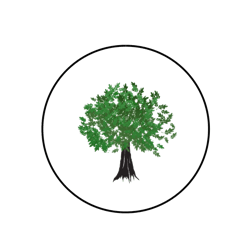Digestive Relief
The most common problem which I encounter in clinical practice is patients with gastrointestinal issues. Some come in with one symptom like gas, bloating or throat burning. Others come in with more complicated presentations like diarrhea alternating with constipation or intense stomach pain with spasming.
Whether it is a difficulty when eating or bathroom urgency, it is important to me to provide therapies that help patients heal. The gut forms the foundation for good nutrition and good emotional health, so patients can not truly be vital unless their gut is absorbing enough nutrients and is pain-free.
With G.I. concerns, I start with removing toxins from the G.I. tract and soothing any damaged tissues; whether it is in the stomach, small intestine or the colon. I then assess the underlying cause for the symptoms and formulate a plan that is specialized for each patient.
GERD
For GERD patients, I create a plan that soothes the burning tissue and increases the digestive capacity. I encourage further healing of the tissue in the esophagus while we make sure the patient is getting adequate nutrition to heal. Next, we begin to turn up the digestive fire because we have to close the dysfunctional lower esophageal sphincter. The burning is related to this sphincter remaining open when the stomach acid is high. The stomach acid splashes back in the esophagus and burns the tissue. The sphincter only closes when stomach acid increases significantly.
This is why proton pump inhibitors do not work long term. It lowers the stomach acid and never allows the lower esophageal sphincter to function correctly.
Once we get the sphincter closed and the tissue healed, now we have to figure out what started the process. I formulate a treatment plan to correct the original cause. For many patients, the problem began with inappropriate eating times or with complicated food & beverage choices.
IBS / Gastritis
In IBS and gastritis, the problem begins with inflammation that damages the gut tissue. The first step is to address the inflammation. Treatment starts with tissue soothing therapies that also reduce inflammation.
However, for some patients whose guts are so damaged that they are not absorbing enough nutrients, we use intravenous (IV) protocols. This treatment provides basic nutrition, so the G.I. linings can heal. These patients typically complain of fatigue, constipation, diarrhea, stomach pain or inability to eat a significant food.
After we provide enough underlying nutrition and patients guts begin to heal, we start therapies that rebuild the gut tissue and address the gut biome. IBS patients respond well to these treatments, but it takes time to rebuild significantly damaged tissue. Once the gut tissue is significantly healed, we work with patients on food and lifestyle choices that will maintain these gains.
Parasitic Invasion
I’ve found that many patients gastrointestinal problems revolve around parasitic infections. For these patients, their symptoms present with some gastrointestinal symptoms partnered with chronic fatigue or neurological symptoms (chronic headaches or foggy brain.)
Previous treatments may have temporary improved the symptoms. However, the improvement quickly dissipates, and the person is again inhibited by chronic symptoms. This presentation is common in patients with liver flukes, worms, nematodes and Lyme.
My approach is to see the totality of the symptoms and diagnosis it as a parasitic infection. This is tricky because many of the worst parasitic invasion cases I have seen, did not test positive for parasites on the stool testing. Consequently, I often employ functional testing to identify the problems.
Another critical piece is to recognize that these patients are nutrient depleted and exhausted. Treatment must not further exhaust them. Patients health must be built up while the parasitic invasion is addressed.
I have made a practice out of treating the most complicated G.I. patients. I've acquired an eclectic toolbox of treatments which effectively address the great majority of gut problems. It is rare that treatment does not affect a change in the symptoms a patient is struggling with. Patients with chronic gas & bloating, chronic constipation, GERD, SIBO, IBS, gastritis and gut biome dysfunction have all been helped.
